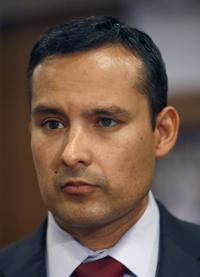TUSD’s plan to expand Fruchthendler Elementary and Sabino High schools has been rejected because of concerns the district worked to create an “honors pipeline” catering mostly to white students.
The decision, made by a federal judge in charge of TUSD’s desegregation case, comes after the Governing Board approved adding sixth grade to Fruchthendler and seventh and eighth grades to Sabino for the upcoming school year.
Though the Tucson Unified School District actively promoted the new program, students were not allowed to sign up, forcing those who expressed interest to have a backup plan, which for many includes enrolling in a competing district or charter school.
Disputing that the effort sought to exclude minority children, TUSD Superintendent H.T. Sanchez says the initiative is not dead, and work is underway to reformulate the plan and resubmit it for approval for the 2016-2017 school year.
At its core, the Fruchthendler and Sabino expansions were grassroots efforts from the two campuses intended to retain students, some of whom leave TUSD for other middle school options and do not return, Sanchez said. In a minority-majority district that is challenged with creating integrated schools, those losses only exacerbate that problem.
The desegregation plaintiffs, however, accused TUSD of “gerrymandering” grade levels and feeder patterns at two high-performing, A-rated schools with high percentages of white students to allow them to bypass the lower-performing Magee Middle School, which has a higher percentage of minority students.
The plaintiffs pointed to the district’s decision to market the effort as a new honors pipeline to families on the northeast side, which is predominantly Anglo, but making no effort to recruit minority students so they, too, could benefit from that programming.
In denying the district’s request, U.S. District Judge David Bury focused heavily on protocol that requires TUSD to solicit input from the plaintiffs before various actions can be taken, given that the district sought parental commitments and publicized the program in ways that may have led some to believe that it would be available.
But he also touched on the plaintiffs concerns’ for minority students, reminding the district it must ensure Latino and African-American students have equal access to advanced learning experiences, including honors programs.
In this case, however, Sanchez doesn’t feel equal access is an issue, saying students have the option of open-enrolling to the school of their choice.
“We began marketing in the area closest to the school because those are the students that we have been losing and we wanted to see if this would retain the students,” Sanchez said. “That was the first effort. If we could retain the students we were losing, then that gave us a good opportunity to expand our reach.”
Despite the ruling, Sanchez was pleased the court is giving the district an opportunity to request approval again.
“It sets us back a bit, but it doesn’t close the door and I think that’s the important piece,” he said.
He also found solace in receiving support for the Fruchthendler model from a desegregation expert who oversees TUSD’s efforts to bring balance to its schools.
The same was not true for the Sabino plan, which the expert believed could hurt integration efforts at other schools like Magee — a claim TUSD rebuts with an analysis that found the change would have little impact.




